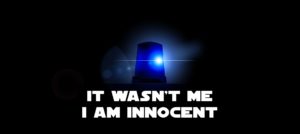I am not guilty!!!

It is often the case that a defendant does not dispute that a crime has been committed but denies any involvement. It’s not only essential to challenge any evidence that points to the defendant as being guilty but also look for evidence that may point the finger elsewhere.
In 2004 the courts clarified that the defence had the right to point out evidence that suggests another person committed the crime. The court stated that:
‘..we find it difficult to comprehend that when A is charged with murder he should not be entitled as part of his defence to seek to establish that B had a motive to murder the victim.’
The practice of ‘the Crown’ being prepared to look at facts which “might” point to another person having committed the crime, which the defendant denies having committed, is deep rooted.
This evidence is relevant and would be balanced against the evidence shown by the Crown that it was the defendant that they have charged. Of course, the Crown cannot be forced to make admissions if they do not accept the points that there is a possibility of a third party being the perpetrator. If they are prepared to make an admission, they can ask the defence for further information or put in further evidence in order that the admission can be fairly put before the jury.’
This is the same for any other offence, but if we use murder as an example, the following principles appear:
i) If it is clear, that there has been a murder and the person on trial (ie the defendant) is saying that he did not do it, then he must by assumption be saying that someone else did. The defendant does not have to establish that someone else did the murder but, if he has evidence which proves that someone else did the murder, he must be able to show it. If he has any evidence that points to another person having a motive to do it, he must be allowed to produce evidence of that motive. If he has any other evidence that would point to the possibility that another person might have done the murder he should be allowed to produce it.
ii) The Crown do not have to call as a witness the person being accused, but if the evidence pointing to them was powerful enough the Crown may want to do this.
iii) The judge can express a view on whether evidence is allowed or relevant, but the evidence which the Crown are prepared to put forward should be ‘on the whole’ left to the prosecution.
In all cases, we will always look at challenging the prosecution.